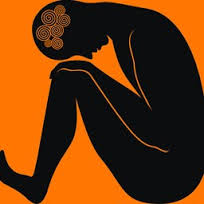Values vs. Emotions
 Often in my Internet group people mention that they feel that the difference between people with BPD and Non-BPs is that they have different “value sets.” I disagree with this understanding of BPD. It’s not about values. It’s about emotions. In my opinion, emotions will trump values just about every time, especially in someone who does impulsive things under the influence of strong negative emotions. Emotions operate on a more “primal” level than do values. In WHINE, I quote Peter Steinke’s Healthy Congregations:
Often in my Internet group people mention that they feel that the difference between people with BPD and Non-BPs is that they have different “value sets.” I disagree with this understanding of BPD. It’s not about values. It’s about emotions. In my opinion, emotions will trump values just about every time, especially in someone who does impulsive things under the influence of strong negative emotions. Emotions operate on a more “primal” level than do values. In WHINE, I quote Peter Steinke’s Healthy Congregations:
When stress and anxiety are high, the R (reptilian) system is exaggerated. In other words, people become more thoughtless, more instinctive, and more automatic. The same is true concerning the feeling brain. Once fueled by limbic-derived feelings, we have less access to the thinking brain. Both brains have ensured the survival of the individual and the species. Necessary to survival, feelings have an insistent quality and are hardwired into the nervous system. With strong arousal, the limbic brain can be driven to continue. The reactive force can go on for hours. Highly excited emotional states are like poison ivy – we become all itch.
The point of this quote is to illustrate that emotions operate at a lower level in the brain than do values and even thoughts. The author goes on to say:
One of the functions of the thinking brain is to exercise veto power over the instinctive forces of the two lower brains [Reptilian and Feeling brain]. It sets limits on behavior; it provides self-control. This is one reason moral codes are stated in the negative – “Thou shalt not . . .” Nonetheless the lower brains, more automatic and defensive than the thinking brain, have a quicker triggering effect and do not easily defer to the thinking brain.
The phrase “do not easily defer to the thinking brain” is an understatement in my opinion. If someone is overcome with emotions, especially strong, negative emotions which is the likely situation with BPD, the “lower brains” at which the emotions are operating will rarely defer to the thinking brain. Therefore, if a person with BPD acts in a way that goes against his/her values, that is probably the cause.
A detailed explanation is available in When Hope is Not Enough:


